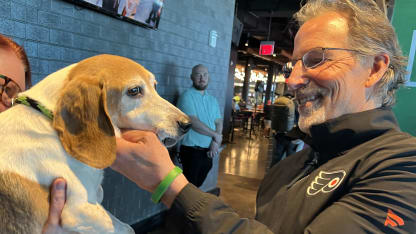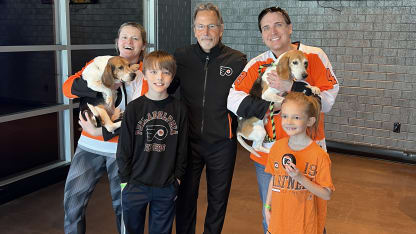John Tortorella will have the familiar scowl and angry disposition he's had for most of the previous 1,499 NHL games he's coached when he steps behind the bench for the Philadelphia Flyers on Friday.
And Mike Sullivan will laugh, like he usually does.
"He polishes his own schtick, don't kid yourself," said Sullivan, the Pittsburgh Penguins coach who spent six seasons as Tortorella's assistant with three teams. "He's pretty calculated with respect to that."
Tortorella, 65, will become the first coach born in the United States, and eighth overall, to reach 1,500 games when the Flyers visit the Seattle Kraken (10 p.m. ET; ROOT-NW, NBCSP+).
In 22 seasons with the New York Rangers, Tampa Bay Lightning, Vancouver Canucks, Columbus Blue Jackets and Flyers, Tortorella is 723-590-149 with 37 ties. He's 10th on the NHL wins list, and second among U.S.-born coaches behind current Rangers coach Peter Laviolette (776).
Tortorella's teams have reached the Stanley Cup Playoffs 12 times, including the 2004 Stanley Cup champion Lightning. He has won the Jack Adams Award as NHL coach of the year twice, in 2004 and in 2017 with the Blue Jackets.
His manner and methods have been described with several adjectives over the years, most of them unflattering.
But those who know him away from the rink paint a different picture.
"He just came from such a humbling place that was just so endearing," said Lisa Bonanno-Spence, director of development at SPCA Westchester in Briarcliff Manor, New York. "He was just so kind to us."





















